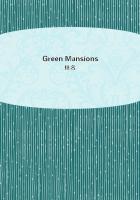(1) <i>The Nineteenth Century,</i> 1886.
(2) Both dolphins and dugongs occur in the Red Sea, porpoises and dolphins in the Mediterranean; so that the "Mosaic writer"may have been acquainted with them.
(3) I said nothing about "the greater number of schools of Greek philosophy," as Mr. Gladstone implies that I did, but expressly spoke of the "founders of Greek philosophy."(4) See Heinze, <i>Die Lehre vom Logos,</i> p. 9 <i>et seq.</i>
(5) Reprinted in <i>Lay Sermons, Addresses, and Reviews,</i>
1870.
(6) "Ancient," doubtless, but his antiquity must not be exaggerated. For example, there is no proof that the "Mosaic"cosmogony was known to the Israelites of Solomon's time.
(7) When Jeremiah (iv. 23) says, "I beheld the earth, and, lo, it was waste and void," he certainly does not mean to imply that the form of the earth was less definite, or its substance less solid, than before.
(8) In looking through the delightful volume recently published by the Astronomer-Royal for Ireland, a day or two ago, I find the following remarks on the nebular hypothesis, which I should have been glad to quote in my text if I had known them sooner:--"Nor can it be ever more than a speculation; it cannot be established by observation, nor can it be proved by calculation.
It is merely a conjecture, more or less plausible, but perhaps in some degree, necessarily true, if our present laws of heat, as we understand them, admit of the extreme application here required, and if the present order of things has reigned for sufficient time without the intervention of any influence at present known to us" (<i>The Story of the Heavens,</i> p. 506).
Would any prudent advocate base a plea, either for or against revelation, upon the coincidence, or want of coincidence, of the declarations of the latter with the requirements of an hypothesis thus guardedly dealt with by an astronomical expert?
(9) Lectures on Evolution delivered in New York (American Addresses).
(10) Reuss, <i>L'Histoire Sainte et la Loi,</i> vol. i, p. 275.
(11) For the sense of the term "Elohim," see the essay entitled "The Evolution of Theology" at the end of this volume.
(12) Perhaps even hippopotamuses and otters!
End















